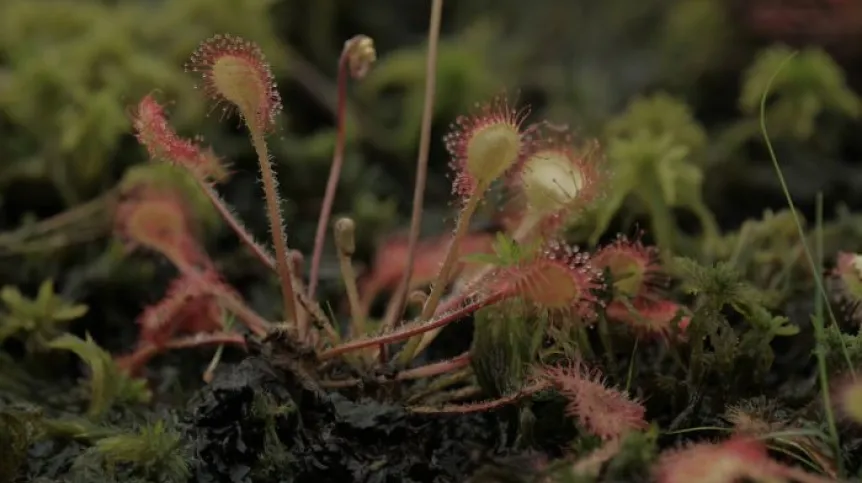
The insectivorous sundew helps scientists destroy the 'armour' that protects bacteria from antibiotics. Even the most resistant bacteria on catheters or dressing materials have a much lower chance of growing and lose their antibiotic-resistant coating when treated with an extract from selected plants.
Scientists at the West Pomeranian University of Technology in Szczecin, led by Dr. Łukasz Łopusiewicz (Center for Bioimmobilization and Innovative Packaging Materials at the West Pomeranian University of Technology), Professor Sebastian Guenther (Institut für Pharmazie, Universität Greifswald, Germany) and Dr. Paweł Kwiatkowski (Pomeranian Medical University) collaborate in the fight against antibiotic-resistant bacteria.
The scientists decided to use natural extracts from plants - such as sundew (an insectivorous plant) or Elephantorrhiza elephantina from southern Africa. These plants strongly inhibit the formation of bacterial biofilms, as previously determined by researchers from Germany.
Many bacteria have the ability to create biofilms, i.e. multicellular structures surrounded by a layer of organic extracellular substances. Bacteria create them to protect themselves against external factors that are harmful to them, including antibiotics. Such a biofilm participates in the pathogenesis of chronic diseases, especially the so-called hospital-acquired infections, i.e. those accompanying the use of catheters, drains, insertion of implants, and in the formation of difficult-to-heal wounds. Microorganisms in a biofilm can be up to 1,000 times more resistant to antibiotics than free cells.
The Polish-German team selected multi-resistant strains of bacteria. They are combined with a biopolymer covered with sundew extract, among other things. This biopolymer is usually a form of cellulose (one of the most common polymers in nature, a component of most plants) or alginate (which can be obtained from seaweed). It turns out that even the most virulent bacteria - sometimes found on catheters or dressing materials - have a much lower chance of developing.
The research project included ifellowships of Szczecin researchers in Germany and German scientists' visits to Poland.
The cooperation between the West Pomeranian University of Technology, the Pomeranian University of Technology and the University of Greifswald started in 2021. Its results include several publications - one of them can be read here, another here.
PAP - Science in Poland
kol/ bar/ kap/
tr. RL













